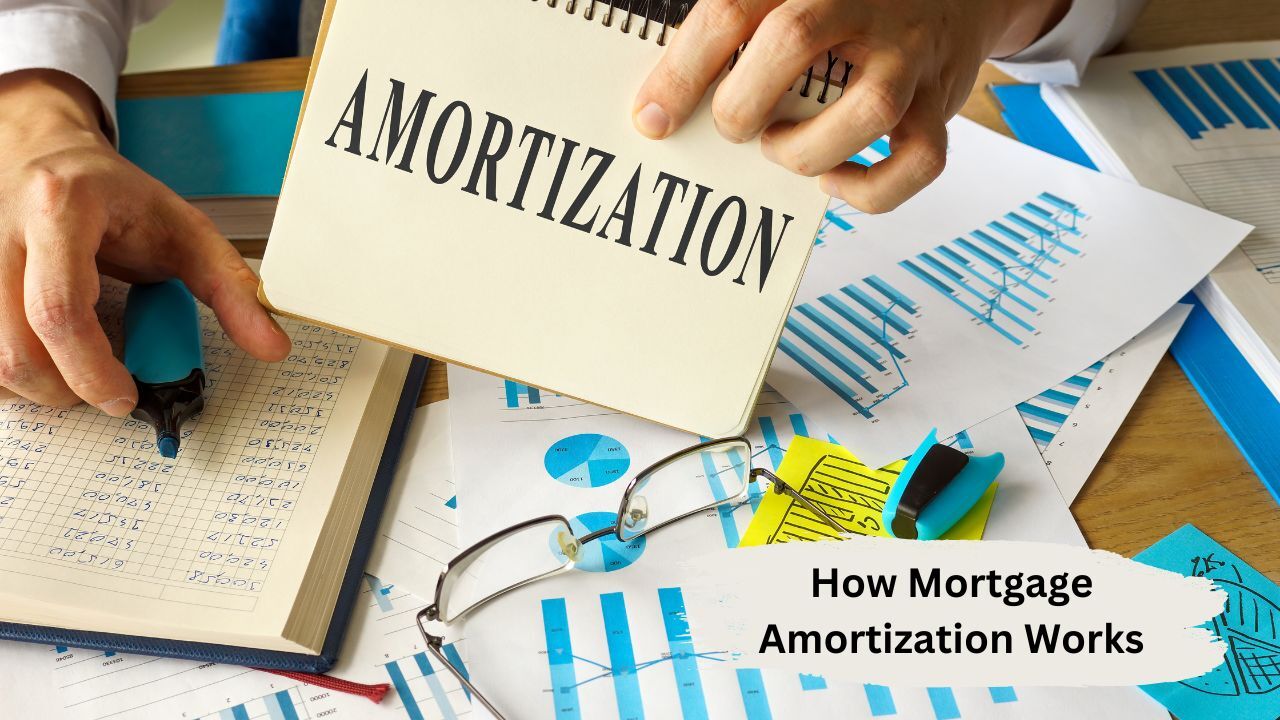 When you take out a mortgage, you commit to a long-term financial obligation. Understanding mortgage amortization can help you make informed decisions about your loan and how your payments impact your financial future.
When you take out a mortgage, you commit to a long-term financial obligation. Understanding mortgage amortization can help you make informed decisions about your loan and how your payments impact your financial future.
What is Mortgage Amortization?
Mortgage amortization refers to the process of gradually paying off your loan over time through fixed monthly payments. Each payment is divided into two parts:
- Principal: The portion that goes toward reducing your loan balance.
- Interest: The amount paid to the lender for borrowing the money.
At the start of your loan, a larger percentage of your payment goes toward interest. Over time, as the loan balance decreases, more of your payment is applied to the principal, helping you build home equity.
How Mortgage Amortization Works
Your lender calculates your monthly mortgage payment using an amortization schedule, which outlines how much of each payment goes toward principal and interest over the life of the loan.
For example, if you take out a 30-year fixed mortgage, your payments remain consistent, but the way they are allocated changes over time. In the early years, most of your payment goes toward interest, while in later years, more goes toward reducing your loan balance.
Factors That Affect Amortization
Several factors impact your mortgage amortization schedule, including:
- Loan Term: A 15-year loan pays off faster than a 30-year loan, but the monthly payments are higher.
- Interest Rate: A lower interest rate means less of your payment goes toward interest.
- Extra Payments: Making additional principal payments can help reduce your loan balance faster and save you thousands in interest.
Benefits of Understanding Amortization
- Helps you see how much interest you’ll pay over the life of the loan.
- Allows you to plan for early payoff by making extra payments.
- Provides insight into how quickly you build home equity.
How to Pay Off Your Mortgage Faster
- Make Extra Principal Payments: Even small additional payments reduce interest costs.
- Biweekly Payments: Making half payments every two weeks results in one extra full payment per year.
- Refinancing: If rates drop, refinancing to a shorter loan term can accelerate payoff.
- Round Up Payments: Rounding up to the nearest hundred can shorten your loan term without a big impact on your budget.
Mortgage amortization is a key concept every homeowner should understand. Knowing how your payments are structured allows you to plan ahead, reduce interest costs, and even pay off your loan faster. Whether you’re just starting your homeownership journey or looking to optimize your mortgage, understanding amortization can help you make the best financial decisions.
 When homeowners need access to funds or want to optimize their mortgage terms, they often face a critical decision: Should I get a second mortgage or refinance? Both options have unique advantages and considerations, making it essential to evaluate your financial situation and long-term goals before choosing the best path.
When homeowners need access to funds or want to optimize their mortgage terms, they often face a critical decision: Should I get a second mortgage or refinance? Both options have unique advantages and considerations, making it essential to evaluate your financial situation and long-term goals before choosing the best path.